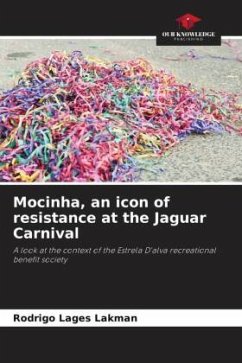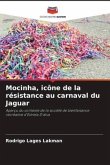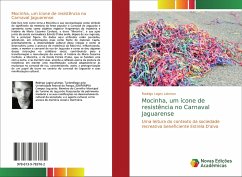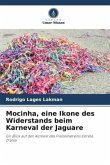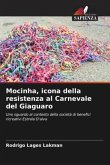The theme of this book is Mocinha and her representation as a symbol of the significance of the memory of the popular festival, the Jaguarão Carnival. The aim is to record fragments of the trajectory and history of María Cezarina Cardozo, known as "Mocinha", and her work with the Estrela D'alva carnival school, where she was the main figure after joining. The data used here is mainly based on oral information as a source of material. It primarily captures the cultural immateriality of this relationship and how it developed alongside Mocinha's posture of resistance, thus influencing the maintenance of Jaguarão's street carnival and how some of these interactions took place in everyday life, contributing to the transformation and maintenance of the event. The story of Maria Cezarina Cardozo, Mocinha, and the Estrela D'alva School, which merge with each other and remain alive, reflects on the posture of resistance in maintaining a cultural manifestation by adapting to the changes instreet carnival, thus characterising the protagonisation of an iconic role in Jaguarão's carnival scene and its cultural manifestations.
Bitte wählen Sie Ihr Anliegen aus.
Rechnungen
Retourenschein anfordern
Bestellstatus
Storno

